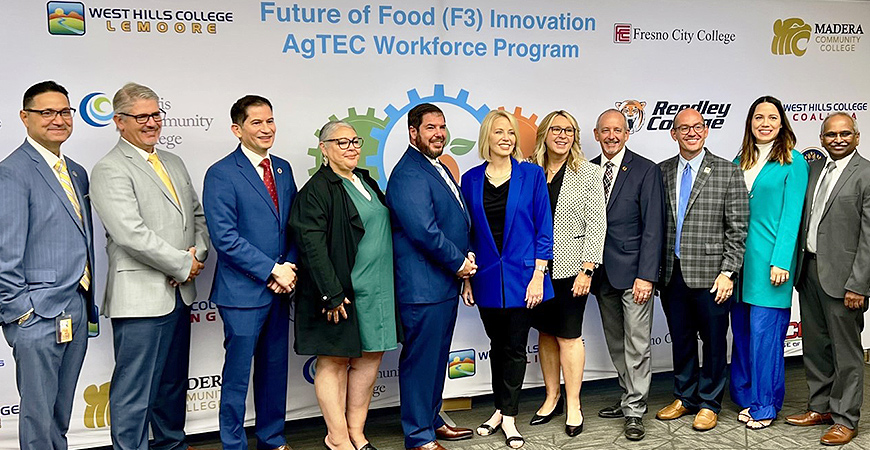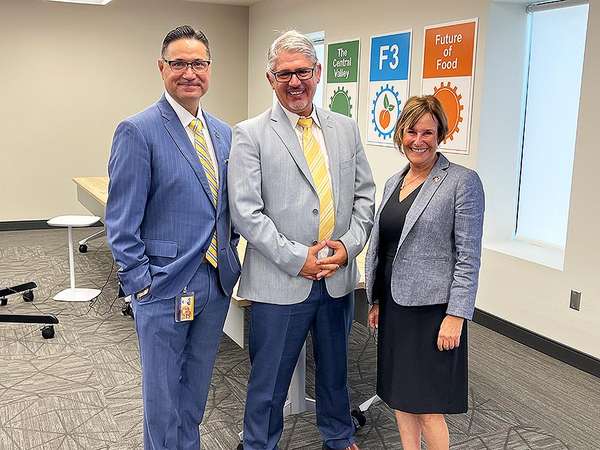
The White House announced today (Sept. 2) a $65.1 million award — the largest federal grant ever awarded to the Central Valley — to the Fresno-Merced Future of Food Innovation (F3) Coalition as part of its "Build Back Better" initiative to boost economic recovery after the pandemic. The funding will help launch a state-of-the-art agricultural technology hub that will serve and connect farmers across the San Joaquin Valley to industry and spark a new, more advanced era in agriculture-based technology in an effort to boost productivity, create jobs and build capacity for regional sustainability.
Composed of scholars and researchers from UC Merced and Fresno State, farmers, agricultural organizations, community colleges and manufacturers, the F3 coalition is one of 21 regional groups selected to receive grants from the federal government's $1 billion Build Back Better Regional Challenge. The coalition's proposal received the largest pool of funding from the challenge and was among 60 finalists nationwide. In total, the challenge garnered 530 applicants.
The new technology center, dubbed iCREATE, will serve communities across Merced, Madera, Fresno, Kings and Tulare counties. Ashley Swearengin, president and CEO of the Central Valley Community Foundation (CVCF) — the lead agency and coordinator of the grant — describes it as a place that will "bring together the University of California research arm with the engineering capabilities of our state schools, alongside industry and community, all under one roof at a dedicated facility."

"We are thrilled that the Biden administration has recognized the unique potential of our Valley in awarding this grant to the Central Valley Community Foundation," said UC Merced Chancellor Juan Sánchez Muñoz. "UC Merced looks forward to working with all our partners shoulder to shoulder to advance this effort and make the San Joaquin corridor the foremost global destination for innovation in the future of food."
Interim Vice Chancellor for Research Marjorie Zatz called today's announcement a signature moment for economic development in Central California. "Linking higher education, from the UC and CSU, through our community college partners, to build next generation technologies and train the workforce of the future will continue to build the massive economic impact our faculty and researchers are already having on this region."
UC Merced Professor Joshua Viers, also the director of CITRIS and the Banatao Institute, a key research partner of the effort, has been working with the CVCF since the visioning and scoping period of the F3 coalition began back in 2019. As associate dean for research in the School of Engineering, he will be launching iCREATE as its first center director to spur collaboration among the project participants and helping to integrate workforce development at local community colleges and local food producer activity supported by University of Californiia Cooperative Extension offices.
"The Build Back Better funding of F3 will not only accelerate research and development solutions for climate smart food systems that benefit local communities in the Valley, but also transform how we produce and process food in the future," Viers said. "We will continue to lead the nation in producing food but will lead the planet in how to do it in a more technologically advanced and sustainable manner."






